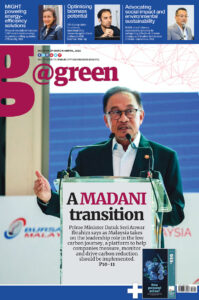Systems that sustain human existence are approaching tipping points
UPL Ltd. (UPL) has declared its participation in The Climate Pledge (‘TCP’). UPL is the first signatory from the agricultural inputs, solutions, and technology industry to join the Pledge.
Amazon and Global Optimism co-founded the Climate Pledge in 2019 to reach nett-zero emissions by 2040 and meet the Paris Agreement 10 years earlier. The Climate Pledge has over 200 members from 26 industries and 21 countries as of September 2021.
UPL is a worldwide provider of sustainable agricultural goods and solutions, reinventing sustainability through OpenAg and feeding sustainable growth for all – no boundaries, no restrictions.
With farmers at the centre, UPL is constructing a network that is redefining how the whole industry thinks and works – one that is open to new ideas and solutions as UPL seeks to make every food production more sustainable.
Jai Shroff, Global CEO of UPL Ltd., has stated UPL believed that global agriculture had a significant role yet nourished nationwide with plentiful food. It would now sustain us through a transformative role in combating climate change.
“Achieving this will rely on reimagining sustainability through the power of partnerships, and by joining The Climate Pledge we are reinforcing our commitment to collaboration, to sustainability, and leadership in our industry. We are excited to join a community that will share knowledge, ideas, and best practices.”
According to the IPCC’s most recent report, the systems that sustain human existence are approaching tipping points, and the window of opportunity to act decisively is passing.
“This wake-up call from science must be faced with courage and conviction,” urged Christiana Figueres, the UN’s former climate chief
and now a founding partner of Global Optimism.
Joining TCP reflects UPL’s broader commitment to reinvent sustainability and redefine agriculture’s position as a constructive contribution to solving the problems posed by climate change, food security, biodiversity loss, and water shortages.
UPL has decreased its carbon emissions by 26 per cent during the previous five years and has set a goal of reducing carbon emissions by another 25 per cent by 2025.








